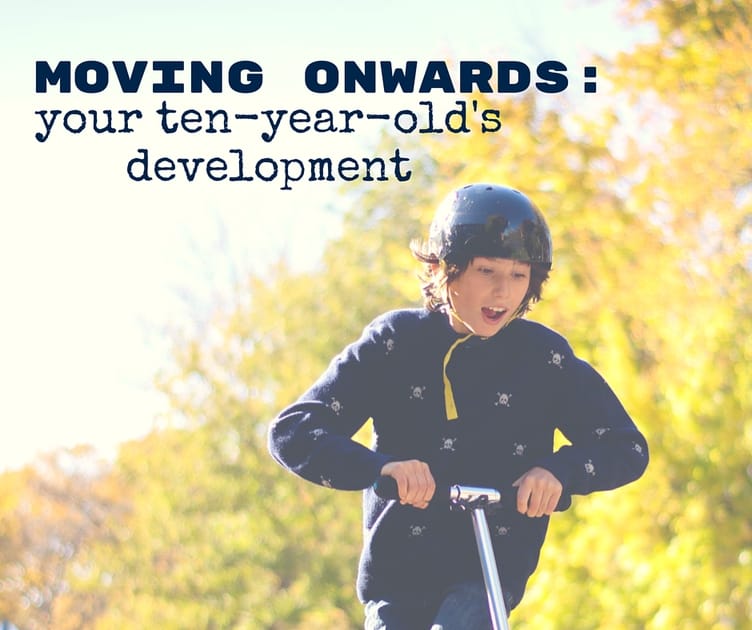
Your child is now officially in their second decade, and while they no longer need you to hold their hand as often, you still have a valuable role in helping them negotiate the path to adulthood.
At the age of ten, a child’s physical skills are now well developed, and they might be interested in activities that require coordination, balance, strength, and speed. Exercising at least three times a week, which includes a combination of aerobic, strength, and muscle-building activities is important. The improvement in their fine motor skills shows in better handwriting and art.
Cognitively, your child will have moved on to longer books, and they may even be writing their own stories. Better verbal communication skills, enhanced by considering cause and effect, enable them to present logical arguments. They can also hold longer conversations with adults and other children. Mathematically, kids at the age of ten are competent in addition and subtraction and may have moved on to tackling multiplication, division, and fractions. School gets more academically challenging, and regular homework teaches them how to work independently and hone their problem-solving skills. At home, they’ll be able to tackle more complicated chores such as doing the laundry or cooking a meal.
Emotionally, your child may be prone to sudden bouts of anger, which is when they’re likely to cry; this may be due to a combination of hormonal changes and trying to work out who they are and want to be. Your relationship with your ten-year-old may change as they grow more independent, requiring some adjustment for you both. They may develop an issue with eating or body image, especially since puberty affects different children at different rates; for example, girls can be heavier and stronger at this age. Exercise, a good diet, and helping your child build their self-esteem can encourage them to adopt a healthy lifestyle and attitude.
Typically, ten-year-old’s have changed their social circles at this stage. It could be important for them to be popular with the “in crowd,” or they may have just one best friend. They’ll still be affectionate with you as it’s not uncommon for a child to feel closer to their mother at this time. They have a strict ethical code and a strong sense of justice, focusing on what’s wrong rather than what’s right. The realization that grey areas exist may leave them needing help to build a moral framework.
The opposite sex has become more interesting, and boys typically show off for the girls though they won’t admit doing it. Both genders may also have platonic same-sex crushes. They’re becoming more independent, but not as independent as they think, and your quiet support and encouragement can go a long way to help your child, especially when faced with significant changes like changing schools.
There are other ways you can support your ten-year-old. Encouraging open communication, talking about problems, being honest, and consulting them on family decisions gives them the confidence and knowledge to face new challenges and increase their trust in you. You can help them develop their sense of responsibility by setting chores and educating them about sound money management.
Safety issues have changed, and it’s essential to teach kids about the risks and what to do to protect themselves both online and in the real world. You can facilitate your child’s studies by encouraging them to do their homework, giving them a suitable place to work, and working with their teachers to address issues. Supporting your child, praising them for effort as well as achievement while showing them affection helps them feel more secure and confident in themselves.
Your child is showing signs of who they will become as an adult, and you can help by supporting them to be a person you, and more importantly, they can be proud of as they grow up.

